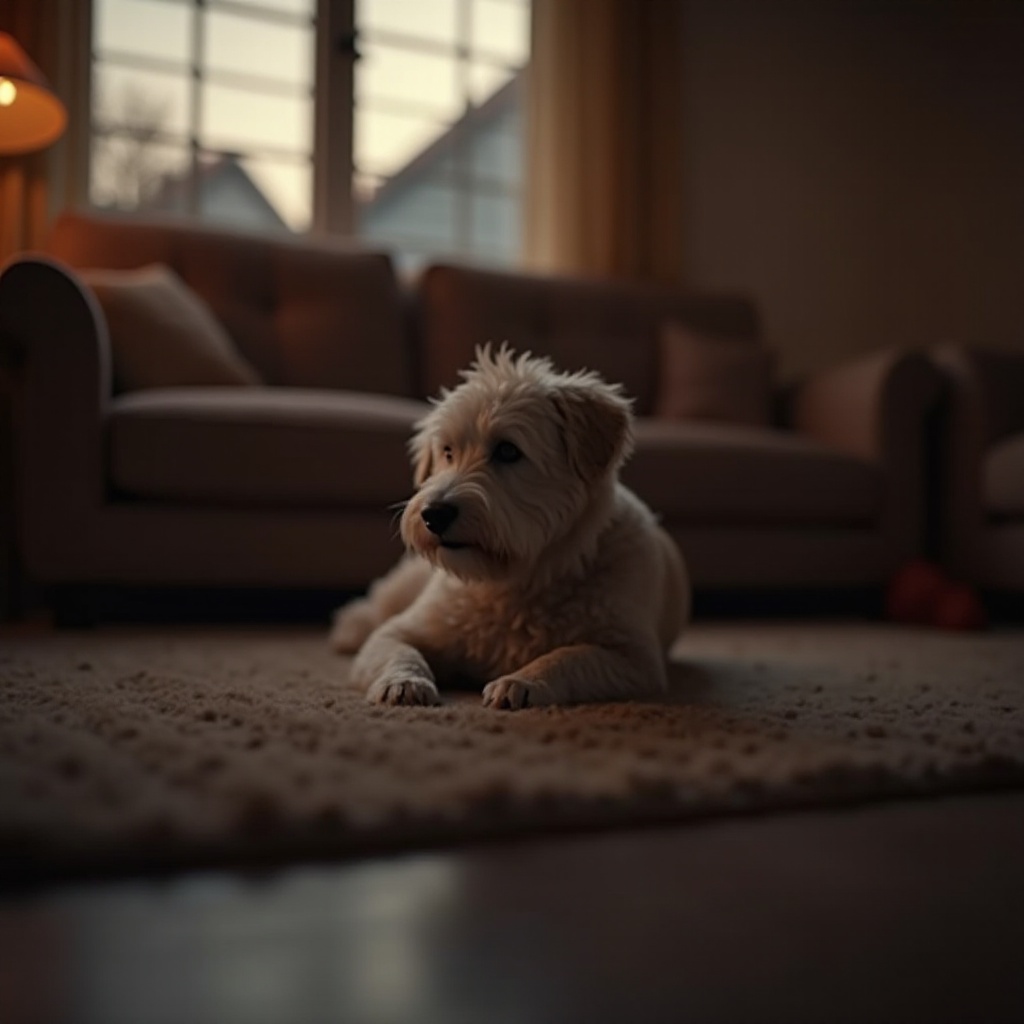Introduction
Older dogs may start whining at night, causing concern for pet owners. Figuring out why this is happening and how to help can be challenging. This age-related behavior can result from several potential issues, ranging from physical discomfort to cognitive decline. Addressing the underlying cause is essential for a peaceful night for both you and your dog. Let’s delve into the common causes, health concerns, and solutions to create a comfortable environment and proper training techniques for your older canine companion.

Common Causes of Nighttime Whining in Older Dogs
Various factors can cause nighttime whining in older dogs. Understanding these causes will help you identify the best steps to assist your pet.
Aging and Physical Discomfort
As dogs age, they may experience physical discomfort. Conditions such as arthritis, joint pain, or muscle stiffness can cause discomfort that becomes more noticeable at night. Your dog’s aging body might be struggling to find a comfortable position, leading to whining as they shift around, looking for relief.
Cognitive Decline (Canine Cognitive Dysfunction Syndrome)
Cognitive decline is another factor. Similar to humans, older dogs can suffer from cognitive dysfunction syndrome (CDS), which affects their memory, awareness, and learning. CDS can cause confusion and restlessness at night, leading to increased whining as they feel disoriented or anxious in the dark.
Anxiety and Separation Issues
Separation anxiety and other forms of anxiety can contribute to nighttime whining. Older dogs may become more dependent on their owners and feel more vulnerable when left alone at night. The quiet and darkness can amplify these feelings, causing them to whine for comfort and reassurance.

Health Concerns to Consider
Nighttime whining might indicate underlying health issues. Being aware of these possibilities can guide you in seeking appropriate care for your dog.
Pain and Arthritis
Pain from arthritis or other conditions can be a significant factor in nighttime whining. As dogs age, their joints become more prone to inflammation and pain, which may worsen when lying down for extended periods.
Changes in Vision and Hearing
Aging dogs often experience changes in vision and hearing. Reduced senses can make it harder for them to navigate their environment, leading to feelings of insecurity. Your dog might whine out of confusion or fear, especially if they become disoriented in the dark.
Urinary Incontinence
Urinary incontinence is common in older dogs and can cause nighttime distress. Dogs with this condition might need to urinate more frequently and might whine when they cannot control their bladder, signaling they need to go outside or are uncomfortable due to accidents.
Creating a Comfortable Sleeping Environment
Ensuring your dog has a tranquil, secure sleeping space can significantly reduce nighttime whining. Consider these adjustments:
Selecting the Right Sleeping Spot
Choose a quiet, comfortable location for your dog to sleep. This spot should be away from household activity and provide a sense of security. An ideal spot is where your dog feels safe and is not disturbed by external noises.
Comfortable Bedding and Temperature Control
Invest in high-quality, orthopedic bedding that supports their aging joints. Ensure the room temperature is comfortable; not too cold or warm. Maintaining a consistent temperature helps your dog feel cozy and prevents discomfort that could lead to whining.
Soft Lighting and Soothing Background Noise
Soft lighting can alleviate fear or anxiety due to darkness. Nightlights can help your dog see their surroundings better and feel more at ease. Additionally, playing soothing background noise, like white noise or gentle music, can mask unsettling sounds and create a calming environment.
Training and Behavior Solutions
Addressing your dog’s nighttime whining can also involve training and behavioral adjustments. Implementing these methods can help improve their nighttime routine.
Establishing a Consistent Bedtime Routine
A consistent routine provides stability. Set a specific time for bed and stick to it. Your dog will become accustomed to this schedule, which can reduce anxiety and restlessness. Include calming activities before bedtime, such as a gentle walk or some quiet time together.
Positive Reinforcement Techniques
Use positive reinforcement to encourage good behaviors. Reward your dog for settling down quietly with treats or affection. Avoid rewarding whining, as this can reinforce the behavior. Consistency is key in helping your dog learn the desired behavior through positive reinforcement.
Using Calming Aids (e.g., Pheromones, Anxiety Wraps)
Calming aids can be very effective. Pheromone diffusers or sprays mimic the calming scents that dogs produce naturally, creating a sense of security. Anxiety wraps, like the Thundershirt, apply gentle pressure to your dog’s body, which can have a soothing effect. These tools can be beneficial complements to other behavioral strategies.

When to Seek Veterinary Help
Understanding when to seek veterinary assistance is critical. If your dog’s whining persists despite your best efforts or is accompanied by other concerning symptoms like lethargy, appetite changes, or noticeable pain, consult your veterinarian. They can perform a thorough examination to rule out or treat medical conditions contributing to the whining.
Conclusion
Addressing nighttime whining in older dogs requires a multifaceted approach. By understanding the common causes, considering health concerns, creating a comfortable environment, and implementing training and behavioral solutions, you can help your senior dog enjoy restful nights. Always observe any changes in behavior and consult with a vet when necessary to ensure your dog’s well-being.
Frequently Asked Questions
What should I do if my older dog starts whining suddenly?
If your older dog starts whining suddenly, assess immediate needs like hunger, thirst, or needing to go outside. If the whining persists, consider potential pain, discomfort, or anxiety and consult your vet to rule out health issues.
Are there any medications to help my older dog sleep better at night?
Yes, there are medications that your vet can prescribe to help manage pain, anxiety, or other underlying conditions. Always consult your vet before giving any medication to ensure it’s suitable for your dog’s specific needs.
How can I tell if my dog’s whining is due to pain or anxiety?
Observing your dog’s overall behavior will help identify the cause. If the whining is constant and accompanies other symptoms like limping, it may indicate pain. Anxiety-related whining is often intermittent and may be triggered by specific events like separation or loud noises.
